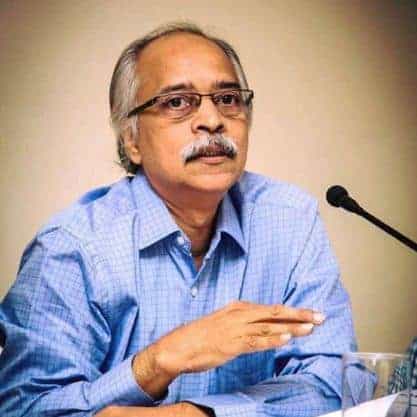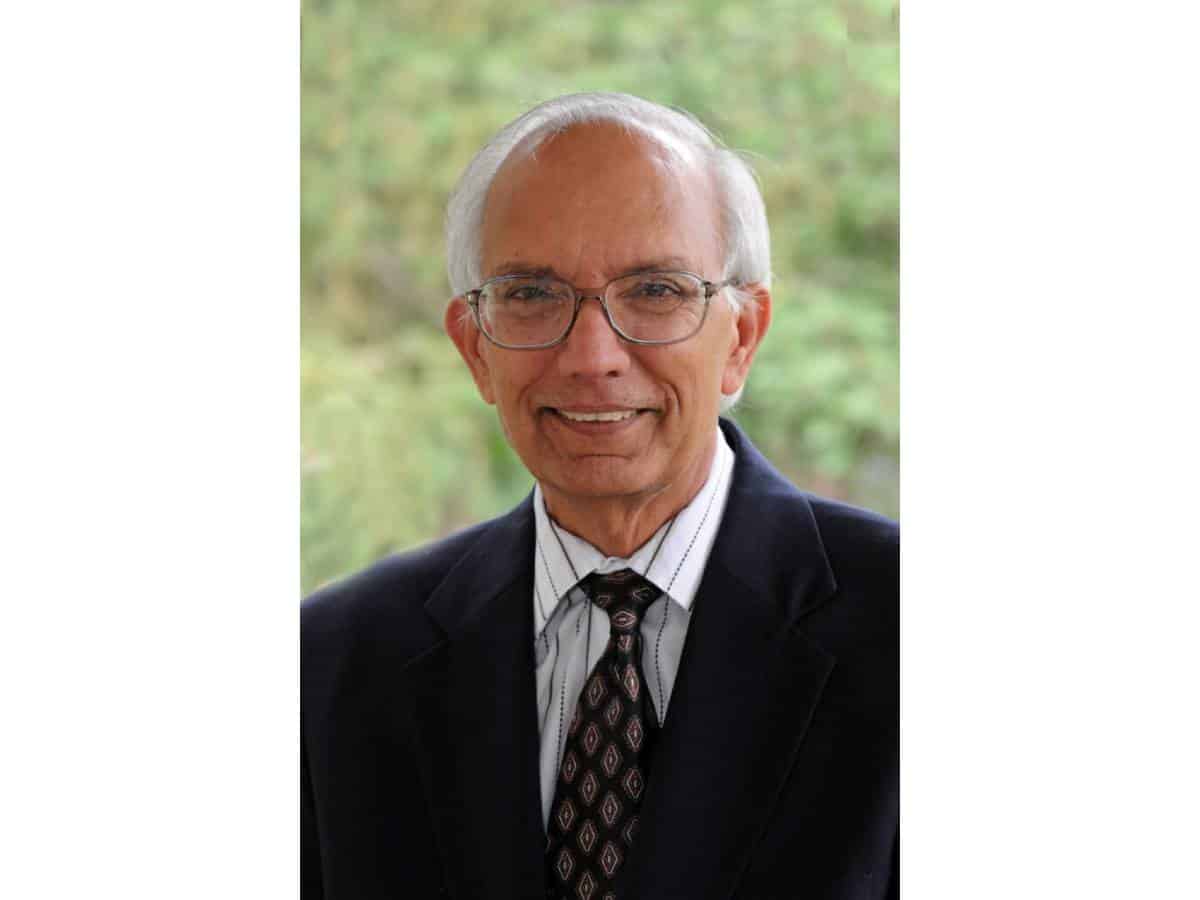M Somasekhar
Hyderabad: More than 100 million hectares or a third of the total cultivated area in India is degraded due to various reasons like erosion, salinity and brick making. The soils are further deficient in all 17 micronutrients, says the 2020 World Food Prize (WFP) 2020 winner, Dr Rattan Lal.
The 76 year old, Indian origin American Dr Lal, is a Distinguished University Professor of Soil Science and founding Director of the Carbon Management and Sequestration Center at the Ohio State University (OSU), US since the late 1980s.
Detailing the soil challenges in India, he says the problems are especially acute in important states with fertile lands like Punjab, Haryana, Andhra Pradesh, Tamil Nadu, Uttar Pradesh, Bihar etc, where intensive cultivation with liberal use of chemicals has created issues. Dr Lal wanted a halt to the practice of burning of farm stubble or crop residues in North India, especially Punjab and Haryana which was also causing severe pollution problems in Delhi and northern states.
Similarly, a ban on brick kilns or making bricks, especially using up farm lands/layers, across many locations would be in order. There is no option, but to reduce the use of chemical fertilisers drastically. Overall, it’s high time that agriculture is made nature friendly and farmers are reconnected with nature and our scriptures. “I have read and can state with conviction that scriptures of almost all religions advocate nature friendly farming,” Dr Lal asserts.
The Indian government has to formulate urgent policy initiatives to reverse deteriorating land conditions and improve soil health. Soil restoration will not happen overnight but gradually over a decade, says he.
Dr Lal said in an interview facilitated through Zoom that he was privileged to join the distinguished Indian WFP winners starting from Dr M S Swaminathan to Dr Gurdev Khush, Dr Sanjaya Rajaram, M Vijay Gupta, BR Barwala etc.
What are the big-ticket challenges facing global Agriculture?
Food and nutrition security is the biggest challenge. To ensure enough to feed the 1.5 billion Indians, 1.6 b Chinese and estimated global population of 9.8 b by 2050 is a formidable task.
To achieve this scientists and farmers will have to overcome the impact of climate change, shrinking and degrading land and falling productivity. Can we get there without increasing land, water and chemical inputs Is a huge issue.
Dr Lal believes, “We have more land, water and fertilisers used than necessary now. We have to decrease and not increase all these.” For example, the land under cereal crops now is 700 million hectares. This can be reduced to 500 million hectares .Similarly, 70 per cent of the water used for irrigation now has to be brought down by a third. This is possible through drip irrigation.
By adopting better soil health improving strategies, the quantum of fertilisers and pesticides can be drastically cut. All these targets are possible even while ensuring higher productivity and making agricultural practices nature friendly, he argues.
The future of agriculture is said to be corporate farming and cooperative farming. What is your take?
The core issue is to manage lands well, be it small holdings of the majority of poor farmers, large tracts by corporates or cooperative farming. One solution will be to wean away people from agriculture towards industry, especially in India where 60 percent are dependent on farming. In US, it’s just 1.5 percent. A more important task in India is to reverse land fragmentation in typical agriculture families by some innovative thinking.
Most often land asset gets fragmented and shrinks with generations in Indian farmers families. This issue has to be addressed seriously, given the challenges of modern, technology intensive farming.
What are your views on the Green Revolution?
The Green Revolution of the late 1960s was a sort of a miracle. Crop yields went up four times. But, with the PL480 grants and technology support, also came some weeds. The focus was on high yielding varieties and seeds with heavy chemical inputs. It served the purpose and India was on the path to quick growth in productivity and production to feed its rising population.
I expected that after a decade at least a shift towards soil health and improvement would begin. Sadly, it has not started to happen adequately even now. The mix of seed-water-chemical, most often in excess over decades has had disastrous consequences on soil health overall.
While, success has been fairly visible, the underlying damage to soils has gone unnoticed for long. India and developing nations must improve productivity and sustainability by improving both soil and environment. It’s no longer a question of either or.
Dr Lal felt that his winning the WFP award is not just recognition to the 700 million small farmers across the globe, but also to the soil-centric approach to the entire ‘Green Revolution’.
Is Soil Sciences an attractive career /area of research?
Soil Sciences was a promising area when I entered in the late1960s and remains just so as we get into the 2020s. But, the bestowing of the World Food Prize on my work is a clear recognition of its crucial role in Agriculture, he says.
In a way, the $250,000 WFP award, considered the Nobel Prize for Agriculture is the crowning glory for the Soil Scientist, whose family, originally hailed from West Punjab in Pakistan, but migrated to Haryana during the partition. He won the prestigious World Agriculture Prize (2019) and the Japan Prize (2018) for Soil Technology and Glinka World Soil Prize (2018).
To promote soil Sciences, he has already created an endowment at the university. Very soon, with the funds from the WFP prize another trust or endowment will be started at a new place. The entire focus will be to promote soil science, which is my life, my passion and mission, says Dr Rattan Lal.

Somasekhar Mulugu, former Associate Editor & Chief of Bureau of The Hindu BusinessLine, is a well-known political, business and science writer and analyst based in Hyderabad.

